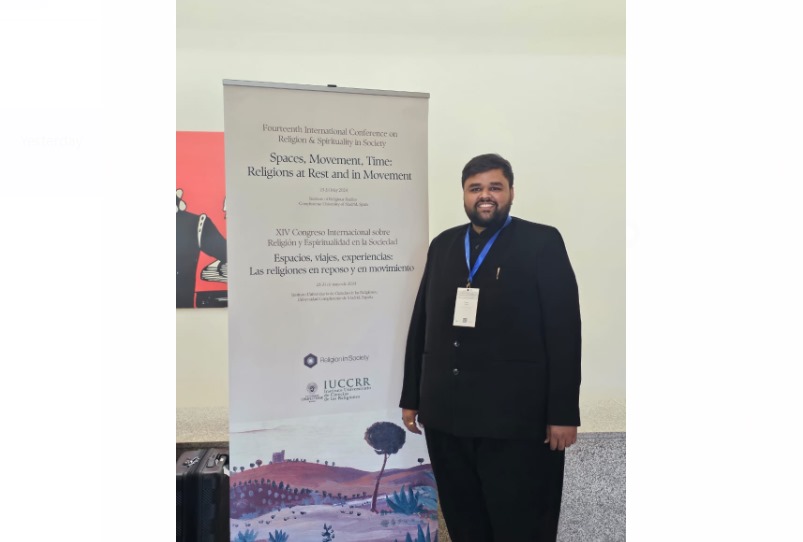
Rishabh Gandhi
Indian lawyer and research scholar Rishabh Gandhi presented a thought-provoking talk at the Fourteenth International Conference on Religion & Spirituality in Society, held at the Universidad Complutense Madrid. His presentation, titled “Ethical Legal Dimensions Of Religious Death Practice of Samadhimaran in Jainism And Hinduism,” provided a detailed analysis of the historical, ethical, and legal aspects of these ancient practices.
Rishabh Gandhi delved into the practice of Sallekhana in Jainism, explaining its roots in Jain Aagamas and its significance in the pursuit of Moksha, or liberation. Sallekhana involves a voluntary and gradual reduction of food and liquid intake, usually undertaken by elderly or terminally ill individuals, with the goal of achieving death with equanimity through deep meditation and detachment. He noted that this practice has been part of Indian tradition for over 2500 years.
Similarly, he discussed Prayopavesa in Hinduism, a practice that has become nearly obsolete. Prayopavesa, like Sallekhana, involves fasting unto death and is performed by those who believe their life purpose is complete. Gandhi traced its origins to ancient Hindu Puranas, emphasizing its spiritual aim of attaining Moksha.
A significant portion of Gandhi’s presentation addressed the bioethical and legal implications of these practices. He highlighted the voluntary nature and spiritual motivations behind them, countering arguments that equate them to suicide. This led to a discussion on the legal challenges surrounding these practices, particularly the 2015 Rajasthan High Court ruling that banned Sallekhana, categorizing it as an attempt to suicide. The Supreme Court of India’s stay on this ruling has kept the debate alive, focusing on the right to die as part of the broader rights to life, privacy, and freedom of religion.
The audience at the conference displayed a high level of curiosity, engaging Gandhi with numerous questions about the ethical, legal, and bioethical dimensions of these practices. Gandhi’s thorough and thoughtful responses were well-received, contributing to a deeper understanding of the complex issues involved.
The conference, organized by Common Ground Research Networks, saw participation from representatives of 32 countries, highlighting its international scope. The conference emphasized the importance of such discussions in today’s global context, where the intersection of religious freedom and legal rights remains a contentious issue.





